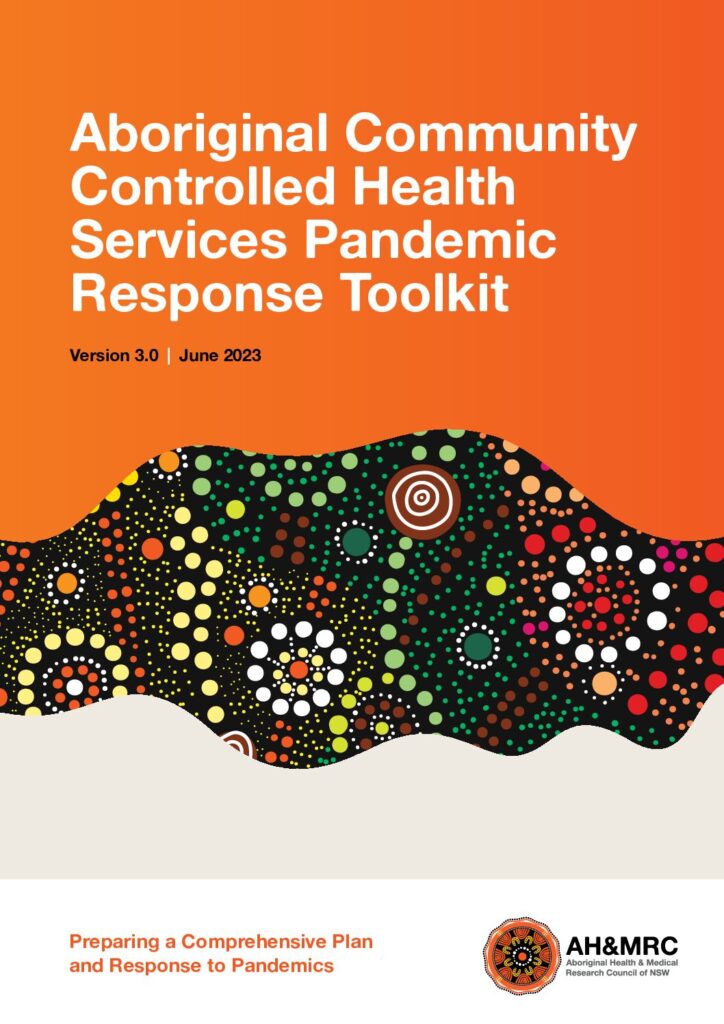There are many emergency situations that may impact the health and well-being of Aboriginal and Torres Strait Islander communities.Such emergencies include natural disasters, severe weather, man made emergencies (eg: a building collapse or major transport accident), infectious diseases, food safety threats and chemical and radiation emergencies
The AH&MRC Public Health team focuses on supporting ACCHO’s to build resilience to emergencies through effective planning and preparation. In addition AH&MRC aims to provide support coordinating immediate responses to an emergency and continuing support through the recovery phase. .
The AH&MRC has formed, and is a member of the ACCHO Emergency Response Committee (the Committee). The Committee provides valuable regional knowledge and learning gained from their experience managing operations of an ACCHO during previous emergencies. They also act to bring attention to emerging emergencies. Once an emergency has been identified, AH&MRC will act as a conduit between our member services and key external stakeholders, including NSW Ministry of Health, Local Health Districts and other emergency agencies.
These insights have informed the development of an Emergency Activation Response Framework (the Framework). The Framework has been designed for use during early stages of an emergency response and is designed to assist ACCHOs respond to emergency situations.
- Emergency Activation Framework for ACCHOs
– The Framework provides a high-level plan for the early stages of responding to an emergency. - Emergency Activation Framework: Appendix
– The Appendix is supplementary to the Framework and considers the four phases of emergency management and specific considerations for different emergencies.
The AH&MRC also has a number of tools to assist ACCHOs during pandemics
- AH&MRC Pandemic Toolkit
- AH&MRCs Influenza Toolkit







